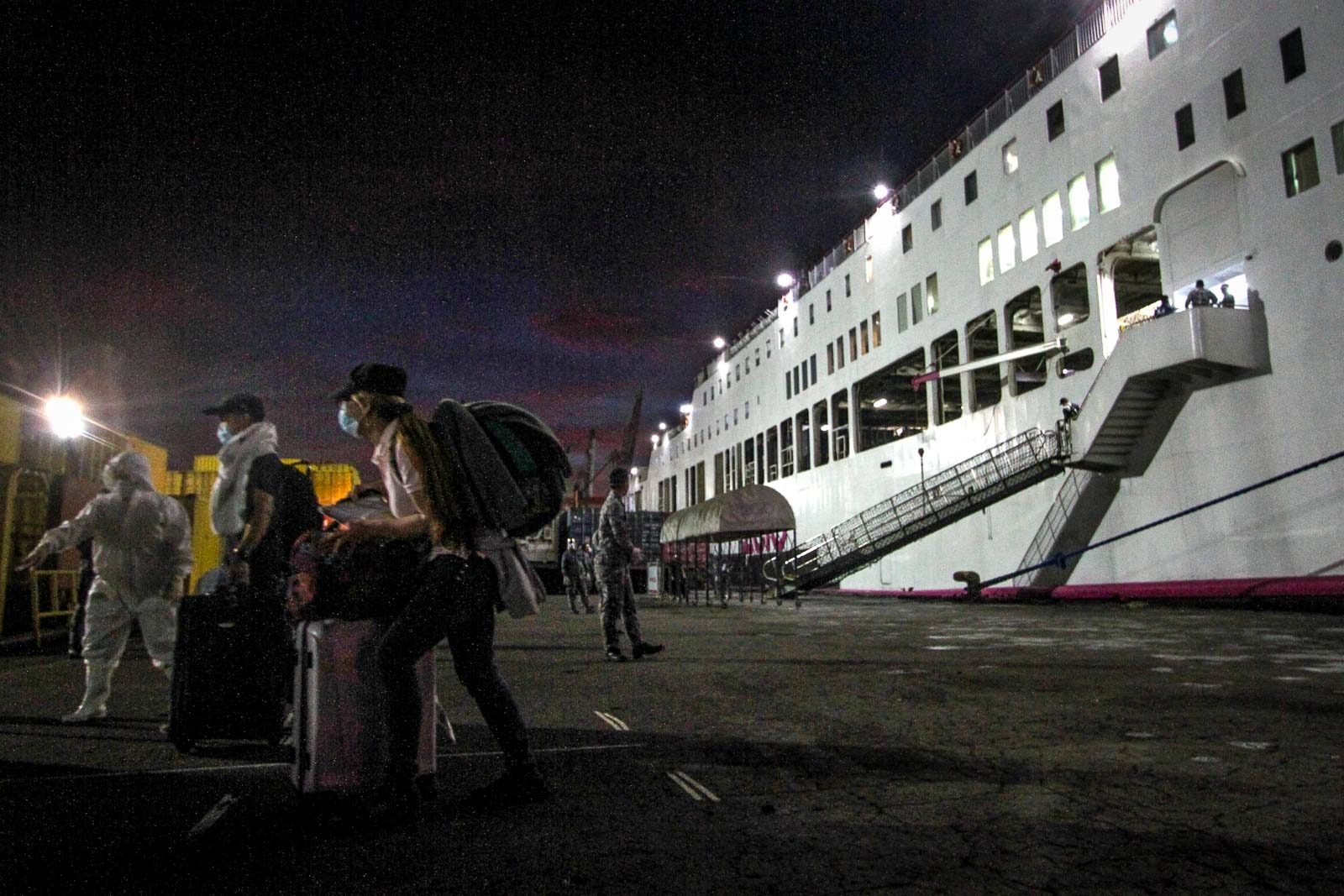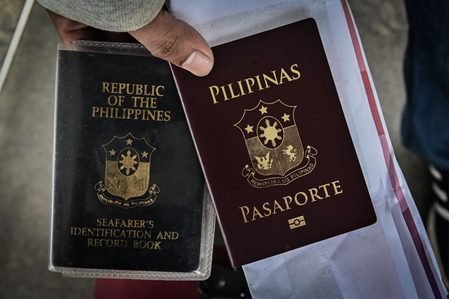SUMMARY
This is AI generated summarization, which may have errors. For context, always refer to the full article.

MANILA, Philippines – Two lawmakers urged the Maritime Industry Authority (MARINA) to integrate its management-level course (MLC) into the basic curriculum of Filipino seafarers so that all will have access to higher competencies, as well as, avoid additional tuition expenses.
Kabayan Representative Ron Salo, chair of the House committee on overseas workers affairs, and Gabriela Representative Arlene Brosas made this appeal during a House panel hearing on Thursday, November 17. The committee continued discussions of the Philippines’ compliance with the international Standards of Training, Certification, and Watchkeeping (STCW) Requirements.
Samuel Batalla, officer-in-charge of the MARINA STCW Office of the Executive Director, said that the MLC is a requirement for seafarers who seek to become captains, chief mates, chief engineers, and engineer officers. Not all seafarers are required to take this course, but it is required by the STCW for those who wish to seek higher positions.
Brosas said she had received reports that the MLC comes with a cost of around P50,000 to P60,000 ($872 to $1,047). Batalla said these fees go to the training providers, as they have the equipment and instructors.
But Brosas said that MARINA should regulate these fees.
“You have the power na mag-regulate, na magsabi na hindi dapat ganito kamahal. Ganito kalaki ang binabayaran ng ating mga marino para lang nang sa ganon, nagkakaroon sila ng opportunity ng management-level course… na dapat naman talaga napro-provide natin sa mga marino kasi gusto naman natin na itataas ‘yong kanilang kakayanan,” said Brosas.
(You have the power to regulate, to say that it should not be this expensive. Our seafarers are paying this much just for that, for them to have an opportunity to take a management-level course that we should be providing to our seafarers because we want them to have higher competencies.)
Salo said that the non-integration was a limitation to seafarers getting promoted.
“Kung iaaayos naman natin ‘yong curriculum, ba’t hindi natin isama to make sure na mayroon nang avenue para doon sa mga graduates natin na umangat without the need of going through those particular trainings?” said Salo.
(If we’re revising the curriculum anyway, why don’t we just integrate it to make sure that our graduates have an avenue to move up without the need of going through those particular trainings?)
Batalla said that there was a continuous review of the curriculum, and that there were existing proposals to incorporate all management competencies in the curriculums of the BS Marine Transportation and BS Marine Engineering programs.
“There are some manifestations and feedback that not all management competencies can be integrated into the curriculum because they are only students,” Batalla said in a mix of English and Filipino.
He said that there were prerequisites of experience at an operational level before a seafarer would be able to understand the MLC. Batalla also mentioned that there are plans to convert some of the MLC lessons to a distance learning set-up so that deployed seafarers can take the course while they are on board vessels.
The jobs of around 50,000 Filipino seafarers currently deployed in European Union-flag vessels will be at risk if the Committee on Safe Seas arrives at a negative decision on the Philippines’ certification in November.
In its latest audit in 2020, the European Maritime Safety Administration (EMSA) found 13 shortcomings and 23 grievances in the Philippines’ performance, which included lack of training equipment and inconsistencies in teaching and assessment.
MARINA also sought for an “independent evaluation” in March 2022, also in compliance with the STCW, to be conducted by a panel of international experts. They found 15 non-conformities.
Batalla said that the findings of the independent evaluation expands the possible risk of the jobs of all Filipinos deployed around the world, and not just in EU vessels. This could be up to 600,000 Filipino seafarers, he said.
MARINA said in September that it is working “round-the-clock” to address the non-conformities and observations in the first stage of the independent evaluation. It released in June a report on the Philippines’ strategic corrective actions to comply.
MARINA said by December, the independent evaluator will commence its second stage of evaluations to verify if the country may be included in the International Maritime Organization’s (IMO) White List.
“Non-inclusion of the Philippines in the IMO White List will tremendously impact the continued employment of Filipino seafarers onboard ocean-going ships and the trading status of Philippine registered ships plying overseas trade,” said MARINA in September.
The Department of Migrant Workers earlier said that 2022 is the final year earmarked by EMSA for compliance.
Commission on Higher Education Chairman Prospero “Popoy” de Vera said in the Thursday hearing that the CHED and MARINA continued to collaborate to build a model curriculum for all universities and colleges offering courses for seafarers, and that the priority was to reform the curriculum to be compliant with the EMSA’s observations.
“That is what I told [President Ferdinand Marcos Jr.] in two Cabinet meetings – that we have to seriously address the ship-board training or the ship-board component because that has a direct implication on the kind of seafarers we produce,” said De Vera.
The CHED chairperson likened this to having a medical school, but not having good training hospitals. “Eh, siyempre, you will not produce good doctors or good nurses.” – Rappler.com
USD $1 = P57.36
Add a comment
How does this make you feel?







![[OPINYON] Tungkol sa naging viral na social media conjecture](https://www.rappler.com/tachyon/2024/07/thought-leaders-conjecture-07262024.jpg?resize=257%2C257&crop_strategy=attention)

![[EDITORIAL] Apat na taon na lang Ginoong Marcos, ‘di na puwede ang papetiks-petiks](https://www.rappler.com/tachyon/2024/07/animated-bongbong-marcos-2024-sona-day-carousel.jpg?resize=257%2C257&crop=280px%2C0px%2C720px%2C720px)











There are no comments yet. Add your comment to start the conversation.